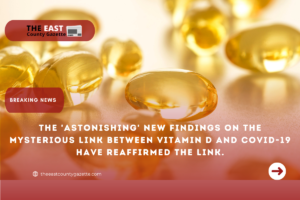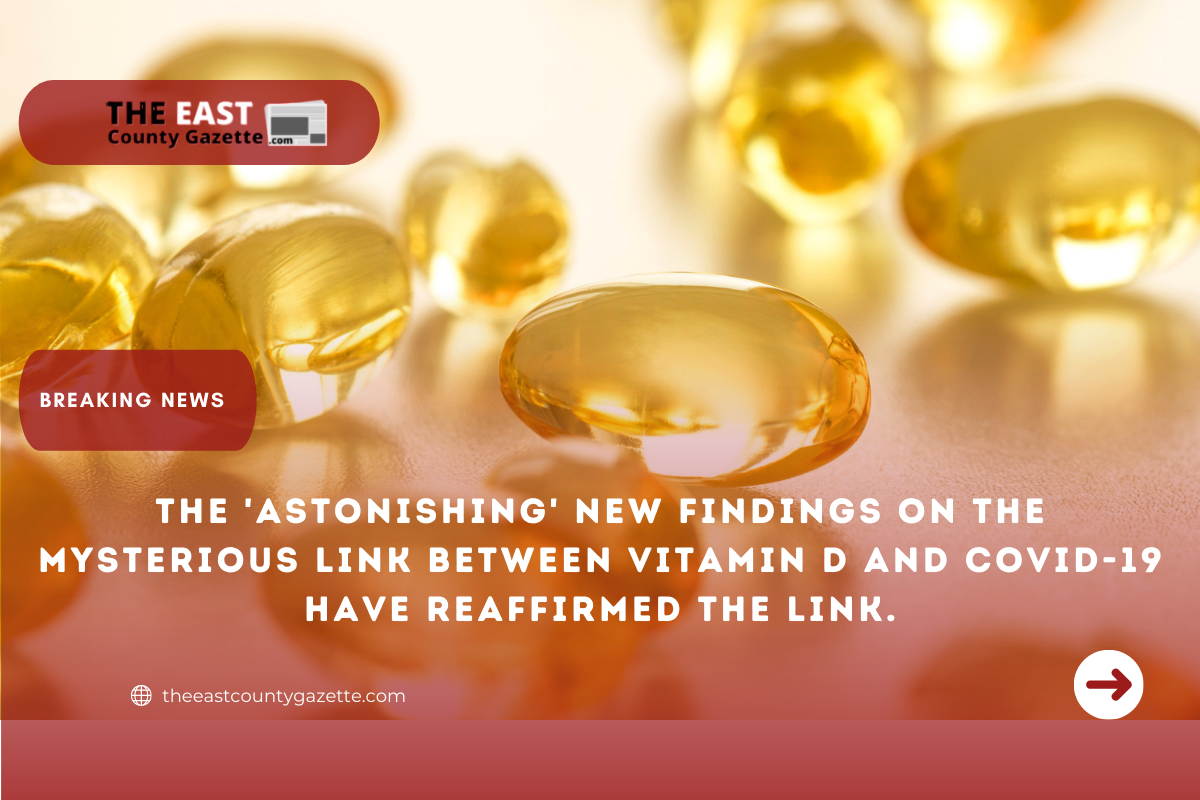When Israeli researchers compared patients who had sufficient vitamin D levels prior to contracting COVID-19 with those who did not, they discovered “astonishing” differences in their chances of becoming seriously ill from the disease.
According to a study published Thursday in the scientific journal PLOS One, approximately half of people who were vitamin D deficient before receiving COVID-19 developed severe illness, compared to less than 10% of people who had adequate levels of the vitamin in their blood.

Vitamin D is well-known for its importance in bone health, but its role in protecting against severe COVID-19 infection is less well-understood.
According to the study’s authors, researchers claim that their latest study was the first to look at vitamin D levels in people before they contracted COVID-19.
Several researchers and physicians at the Galilee Medical Center commented on the findings, including Dr. Amiel Dror. “We found it remarkable and striking to see the difference in the chances of becoming a severe patient when you are lacking in vitamin D versus when you are not,” Dr. Dror said, as reported by the Times of Israel.
Between 7 April 2020 and 4 February 2021, 253 people were admitted to Galilee Medical Center in Nahariya, Israel. This was before the outbreak of the highly infectious Omicron variant was discovered.
Read More: Social Security Automatically Sends $687 Payments as an Increased COLA of $1,657 Arrives.
Researchers discovered that vitamin D helped to strengthen the immune system’s ability to fight viruses that attack the respiratory system, according to Dror.
As Dror pointed out, “this is equally relevant for Omicron as it was for previous variants.”
The research does not demonstrate that vitamin D protects against COVID-19, and it does not constitute a green light to forego vaccinations in favor of vitamin supplementation. According to the UK Health Security Agency, vaccines can reduce the risk of Omicron hospitalization by up to 90 percent, particularly after a booster dose of the virus.
The majority of vitamin D is derived from exposure to direct sunlight on the skin. It can also be found in foods such as fatty fish, mushrooms, and egg yolks, as well as in supplements and other forms of nutrition.
According to the Centers for Disease Control and Prevention, vitamin D levels greater than 20 nanograms per milliliter are considered adequate for the majority of people – which is the standard used by the researchers from Bar-Ilan University and Galilee Medical Center.
A review of research conducted prior to the emergence of COVID-19 and published in The Lancet found that vitamin D reduced the risk of developing other respiratory infections when compared to placebo.
However, in the case of COVID-19, preliminary findings have been inconsistent – some studies have discovered a link between low vitamin D levels and severe COVID-19, while others have concluded that the vitamin is not protective.
Even in studies where results showed a positive correlation between low vitamin D levels and severe COVID-19, the Israeli researchers said it wasn’t clear whether depleted vitamin D levels occurred before or after people became ill.
It is still unclear whether low vitamin D levels in people with COVID-19 are associated with the development of serious disease despite the new Israel data.
People who have underlying conditions that cause them to produce less vitamin D may be more susceptible to severe COVID-19, for example.
COMORBITIES, genetic predisposition, dietary habits, and geographic factors are all factors that contribute to severe COVID-19, according to Israeli researchers. Vitamin D is “one piece of the complex puzzle” that contributes to the disease.
“Our findings call for additional research to determine whether and when vitamin D supplementation among vitamin D deficient individuals in the community has an impact on the outcome of a subsequent COVID-19 episode,” the researchers concluded.

